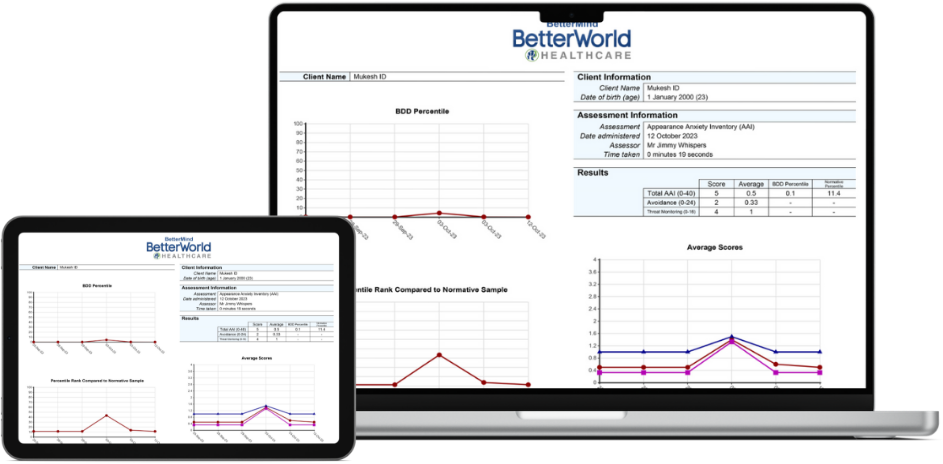Agnew Relationship Measure (ARM-5)
Assessments
Description
The ARM-5 is the 5-item version of the Agnew Relationship Measure (ARM; Agnew, Davies, Stiles, Hardy, Barkham, & Shapiro, 1998), and is a self-report measure designed to assess the client-therapist alliance. It is designed to be used close to the end of a therapy session at regular intervals (either every session, 2nd session or every 3rd session). Given that therapeutic alliance is among the best predictors of treatment success, this tool can help clinicians identify risk of dropout as well as track any ruptures/repairs in the alliance. The ARM-5 has been shown to be equivalent to other scales such as the Session Rating Scale (SRS) in terms of predicting client outcomes (Bouchard, 2018).
- The ARM-5 assesses three dimensions of the alliance known to be important for treatment efficacy
1.Bond
2.Partnership
3.Confidence in therapy
Validity
Cahil et al (2011) evaluated the ARM-5’s psychometric properties against the full 28-item Agnew Relationship Measure, and found it to have acceptable levels of internal consistency and alternative forms reliability. The ARM-5 was psychometrically approximate to the Core Alliance indexes on the longer form.
Used consistently as part of CBT for depression, the ARM-5 was shown to be predictive of client outcomes, where higher levels of alliance predicted later treatment gains/symptom reduction.
The Cahil et al. (2011) Cheffield Psychotherapy Project sample (n=1073) had a mean rating of 5.76 with a standard deviation of 0.91. Cahil et al. (2011) also was found the clients often rate therapists very highly, and the ARM-5 therefore suffers from ceiling effects.
Interpretation
A total raw score ranging from 5 to 35 indicates the overall level of therapeutic alliance. In
addition, scores are presented as “mean scores”, indicating the average responses (from 1 to 7). A percentile rank is presented using the mean and standard deviation from the Cahil et al. (2011) sample, indicating the level of alliance compared to a normative sample. The percentile should be interpreted with caution, however, given the data is significantly skewed with evident ceiling effects (max percentile = 91.4).
Research shows there is minimal psychometrically significant distinction between the three subscales (Bond, Partnership and Confidence). Therefore clinicians are encouraged to use the total alliance score, which is the most reliable and useful measure.
Bond (item 1) is the measure that encompasses the classic dimensions of client-therapist bond and feelings of therapist supportiveness.
Partnership (items 2 and 3) measures agreement on tasks, and agreement on goals.
Confidence (items 4 and 5) measures the client’s confidence in the treatment approach, as well as the perceived confidence the therapist has in their own techniques. Confidence has been identified as the strongest predictor of positive outcome, reflecting the therapist’s and client’s joint sense of progress and investment.
Developer
Jane Cahill , William B. Stiles , Michael Barkham , Gillian E. Hardy , Gregory Stone , Roxane Agnew-Davies & Gisela Unsworth (2012) Two short forms of the Agnew Relationship Measure: The ARM-5 and ARM-12, Psychotherapy Research, 22:3, 241-255, DOI: 10.1080/10503307.2011.643253
Try it and see how BetterMind can enhance your practice

Support
Frequently Asked Questions
You’ve got questions, we’ve got answers. Below you can find answers to some of the most frequently asked questions. If you can’t find the answer you’re looking for, please feel free to reach out to us at info@betterworldhealthcare.com.
I can’t open test results within the Web Browser
Assessment result PDFs are opened in a new tab within the web browser. If you click the results but they do not open, your browser will be blocking the popup. To resolve this, after you have pressed the test result, look out for an alert at the top of your browser notifying you that a pop-up has been blocked, then click "Allow".
I have forgotten my password. How can I reset it?
If you have forgotten your password please press “forgot password” within the app, or on the Web Browser App login page (https://app.bettermind-app.com/login). You will receive a new temporary password via email.
Can a Practitioner access BetterMind from their Smartphone?
No, A Client /Patient can answer assessment questions on a smartphone but the Practitioners/ Users can't administer BetterMind using a Smartphone. A computer, laptop or tablet will have to be used.


